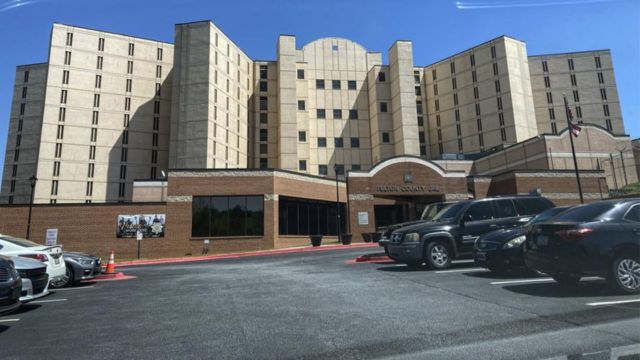Georgia, which once prided itself on being a forerunner in criminal justice reform, is moving even more in the direction of the traditional lock-em-up model.
Senate Bill 63 is just one House vote away from passing after state senators voted 30–17 on Thursday to impose financial bail for 30 additional crimes, including 18 that are consistently misdemeanors.
Additionally, the proposal aims to restrict the ability of charitable bail funds or even individual bail bond companies to release several defendants from jail, limiting their power to do so to those who fulfill legal conditions.
This might leave low-income defendants behind bars for offenses for which they are unlikely to be convicted. Additionally, it might make the overcrowding in Georgia’s county jails worse. It undoes amendments that were almost overwhelmingly approved in 2018 by Republican Governor Nathan Deal and gave judges the authority to release most defendants charged with misdemeanors without posting bond.
This is a part of a national Republican movement to utilize cash bail more frequently, despite the fact that certain Democratic-led jurisdictions completely abolish or severely limit the use of cash bail. Last year, voters in Wisconsin approved an amendment to the constitution allowing judges to take into account a person’s prior convictions for violent crimes before setting bond, illustrative of this division. A court in Illinois had upheld the state’s proposal to abolish cash bail.
Sen. Randy Robertson, a Republican from Cataula who has served as a sheriff’s deputy for many years and was the state president of the Fraternal Order of Police, stated on Thursday that the goal of the legislation is to “make our communities safer.” Since last year, he has made the case in favor of the bill that when suspects are freed on no cash bond, victims feel as though the legal system doesn’t care about them.
However, Roy Copeland, a lawyer from Valdosta who was on Deal’s Criminal Justice Reform Council, asserted that the bill will result in persons charged of misdemeanors losing their homes, employment, and child custody if they are imprisoned and unable to pay bail.
Copeland remarked, “You’re literally taking food out of the mouths of children and adults.”
Republicans have expanded the list of crimes in Georgia for which an accused person must post bail, either in cash or in property, before. There was already twenty-four on that list, and it would grow. Any misdemeanor battery as well as any subsequent misdemeanor of reckless driving or criminal trespassing would need bail.
If a person’s failure to appear in court for a traffic ticket is their second or subsequent infraction, they will additionally have to post bond. If you ignore a traffic ticket, you might spend up to three days in jail. Additionally, after someone is detained on a warrant for non-appearance, that is the amount of time authorities have to present them before a judge.
Governor Brian Kemp of Georgia has stated that he favors stricter bail guidelines. Given that Kemp is not up for election this year, but state lawmakers are, it may be an indication that Republicans want to attack their Democratic rivals for being just as lenient on crime as they were in 2022. Kemp has also supported various anti-crime measures, such as the extension of some offenders’ sentences.
Republicans who have supported Deal’s efforts claim it is not a betrayal of their years of work, pointing out that a Deal-backed clause requiring courts to consider an accused person’s financial situation when determining bail is still in place.
Sen. Brian Strickland, a Republican from McDonough, stated, “Trying not to do a one-size-fits-all for every person was so much of what criminal justice reform was about.” “Discretion is preserved by this.”
However, Democratic senator from Atlanta Josh McLaurin dismissed the notion that magistrates would impose extremely low bail or that bonding firms would be eager to handle such cases.
“Those funnels are going to funnel people there when we say as a matter of law that jail is where we want people to be and we create structural incentives for people to end up there,” McLaurin said.
A number of Democratic lawmakers proposed that the decision to limit bail monies is connected to the continuing legal actions taken by demonstrators against the police and fire training facility that Atlanta is constructing. The concept is mocked by those demonstrators as “Cop City.” Three bail fund operators were among the 61 defendants Georgia Attorney General Chris Carr successfully indicted in September in response to protests.
The Bail Project, an organization that claims to have helped more than 1,500 Georgians escape jail since 2019, questioned the decision to restrict organizations and individuals who don’t fit the mold of bond agents to helping no more than three persons each year in any county or city.
The representative, Lizzie Tribone, compared this to restricting a food pantry and saying it would end hunger.




